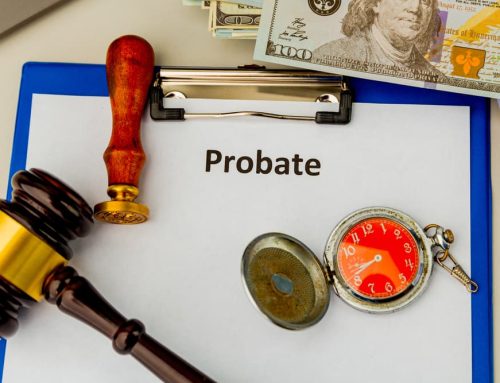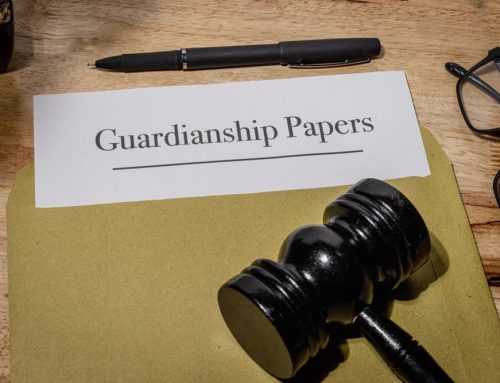What Is Probate in Florida?
What Is Probate in Florida?

When a person passes away, their estate often goes through a court-supervised process called probate before a personal representative distributes assets to the beneficiaries.
While probate can seem complex, it follows a structured legal path.
An effective estate plan may allow you to avoid probate for some or all of your assets. If your loved one’s estate requires probate, a lawyer who handles probate administration can manage the process for your family.
You can either avoid probate entirely through an estate plan that creates trusts and places your assets in transfer-on-death accounts. You can also hire a probate lawyer to guide you through the process, so your family does not have to immerse itself in the day-to-day details of the process.
The Purpose of the Probate Process in Florida

First, probate establishes the validity of the decedent’s will, if there is one. The court confirms that the will meets legal requirements and appoints a personal representative (executor) to manage the estate. If there is no will, the estate is distributed according to Florida’s intestacy laws.
Second, probate provides a formal mechanism for identifying and notifying creditors, giving them an opportunity to file claims for debts owed by the deceased. It also ensures that estate taxes, administrative costs, and valid debts are paid before any distribution to heirs or beneficiaries.
Third, the process helps ensure that assets are properly inventoried, valued, and transferred to the rightful parties. This includes real estate, bank accounts, investments, and personal property.
Finally, probate offers a structured environment to resolve any disputes among heirs or other interested parties. Overall, probate brings legal clarity and accountability to the distribution of assets after death, helping to prevent fraud and confusion.
What Are the Steps to the Probate Process in Florida?
The probate process in Florida involves several legal steps to ensure the proper administration of a deceased person’s estate. While the process can vary depending on whether formal or summary administration is used, the general steps are as follows:
- Filing the Petition – Probate begins when an interested party, usually a family member or the named personal representative, files a petition with the circuit court in the county where the decedent lived. The court then determines whether the will is valid (if one exists) and officially opens the estate.
- Appointment of Personal Representative – The court appoints a personal representative (executor) to oversee the estate. This person is responsible for managing all probate-related tasks. This will typically be the person who is named in this capacity in the deceased person’s will. If there is no will, the court will need to appoint a personal representative.
- Notice to Creditors and Beneficiaries – The personal representative serves formal notice to all known beneficiaries and publishes a notice to creditors in a local newspaper. This publication starts a limited time frame—typically three months—for creditors to file formal claims against the estate.
- Inventory and Appraisal – The personal representative identifies, gathers, and values all estate assets, creating a detailed inventory to file with the court.
- Payment of Debts and Expenses – Valid creditor claims, taxes, and administration expenses are paid from the estate.
- Distribution of Assets – Once all obligations are settled, the remaining assets are distributed to the rightful heirs or beneficiaries according to the will or Florida law.
Does an Estate Have to Go Through Probate in Florida?
In Florida, not all estates are required to go through probate. Whether an estate must undergo probate depends largely on the value and type of assets owned by the deceased at the time of death. Further, the requirement for probate also depends on the nature of the estate plan and whether the deceased person’s assets were addressed in a will or through trusts.
Florida law generally requires probate when a decedent owned assets in their name alone. If the estate’s qualifying assets total less than $75,000, or if the decedent passed away more than two years ago, the estate may use summary administration, a much shorter and simpler probate process.
Certain assets bypass probate entirely. These include property held in joint tenancy with rights of survivorship, assets with designated beneficiaries (such as life insurance policies, retirement accounts, and payable-on-death bank accounts), and property held in a revocable living trust. Additionally, if the deceased’s estate consists primarily of non-probate assets or qualifies for summary administration, formal probate may not be necessary.
Avoiding probate can save time, money, and reduce legal challenges. However, in some cases, probate may clear title to real estate, pay debts, or resolve disputes.
Consulting with an experienced probate attorney in Florida can help determine whether your estate must go through probate and identify the most efficient path for administration.
How Can a Florida Probate Lawyer Help You?

First, a probate attorney can guide you through filing the necessary paperwork, including the petition to open probate and documents required for estate administration. They help you understand your legal responsibilities as a personal representative and assist with deadlines and court requirements.
The lawyer also manages the identification and valuation of assets, ensuring all property is accounted for and properly reported to the court. They assist in notifying creditors and handling claims against the estate, which is critical to protecting the estate from future disputes.
Florida Probate FAQs
What are the different types of probate administration in Florida?
Florida law provides for three main types of probate.
- Formal Administration is the most common type, used for complex estates or when required by law.
- Summary Administration is a faster process for estates where qualifying assets are valued at less than $75,000 or when the decedent has been deceased for over two years.
- A third option, Disposition of Personal Property Without Administration, applies only in very specific cases where the decedent’s final expenses exceed the value of their probate assets.
What is the role of a personal representative in Florida?
The personal representative, sometimes called an executor, is the individual or institution that the deceased’s will or, absent a will, that the court appoints to manage the estate. Their duties include gathering and securing all estate assets, paying the decedent’s final bills and valid creditor claims, filing tax returns, and distributing the remaining property to the beneficiaries according to the will or state law.
Can you sell a house during probate in Florida?
Yes, a personal representative can sell a house during probate, but they must first get court approval. The Florida Statutes outline specific procedures for selling real property from an estate.
The personal representative must petition the court for an order authorizing the sale, and the proceeds become part of the estate to pay debts and distribute to heirs.
What happens if someone dies without a will in Florida?
When a person dies without a will, they die intestate. Florida’s intestacy laws then dictate how their assets pass to their heirs.
The law establishes a hierarchy of relatives who stand to inherit, starting with the surviving spouse and children. If the decedent has no spouse or children, the assets pass to more distant relatives, such as parents, siblings, or grandparents.
Contact A Florida Probate Attorney Near You
Moreover, a probate attorney helps resolve any disputes or challenges that arise, whether involving contested wills, creditor claims, or disagreements among heirs. Their experience can help avoid costly litigation through negotiation or mediation when possible. Contact a Florida estate planning lawyer to protect your family’s assets.
Have questions about how to get started on your estate plan or estate needs?
Have questions about how to get started
on your estate plan or estate needs?
Contact the experienced estate planning professionals at The Estate Plan
by calling us at (305) 677-8489.
Contact the experienced estate planning professionals at The Estate Plan by calling us at
(305) 677-8489.
















